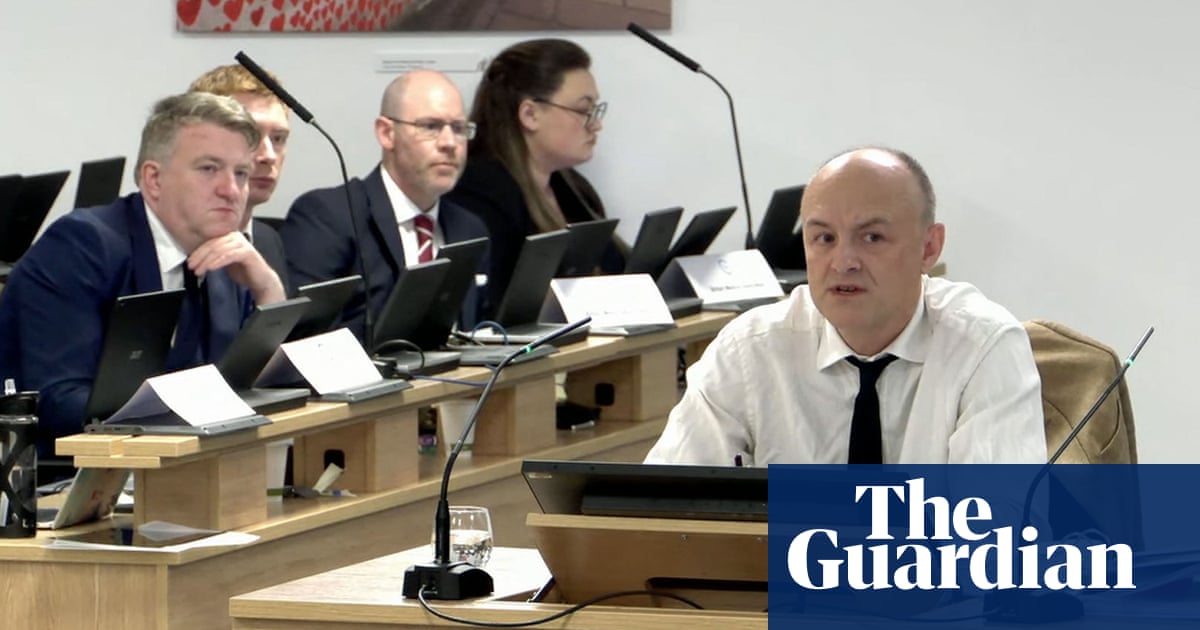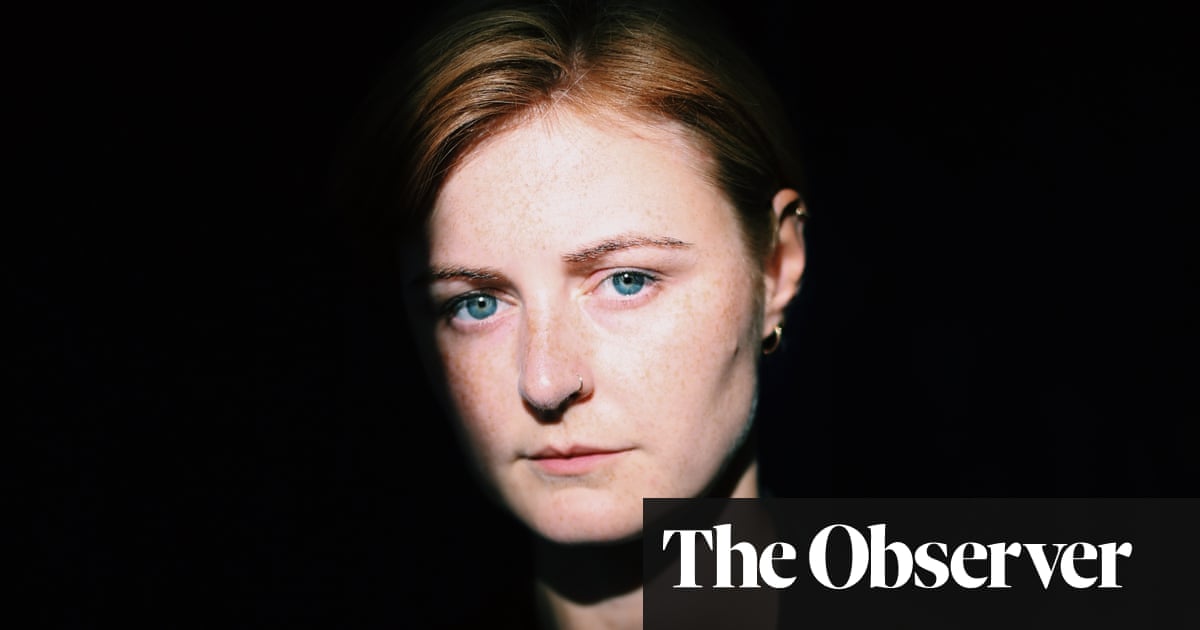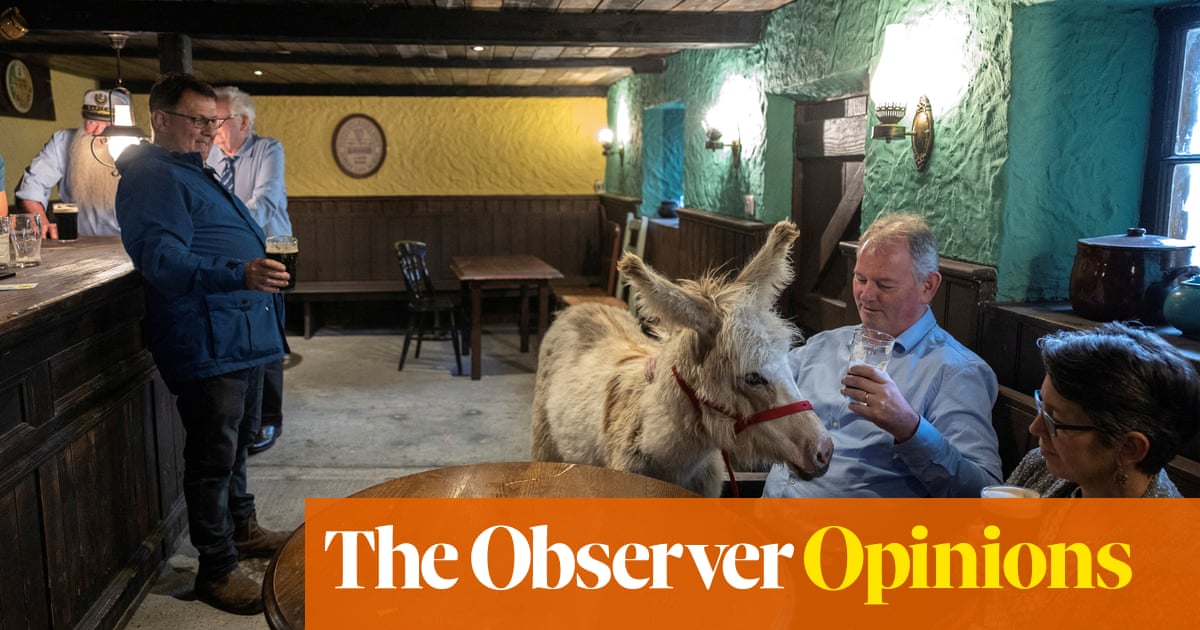
think it’s fair to say that a lot of people are irritable at the moment. It’s the dead of winter, we’re in an indefinite national lockdown and it is possible to have gestated and birthed a whole human child since the last time anyone was legally allowed to go to a party. But even allowing for this, I have found myself surprisingly irritated by something lately, a thing that has become more popular in the present period of the pandemic: doom-mongering.
A significant number of people, including but not limited to influential voices on Twitter, have decided that there will be no “post-Covid” and that thinking we will ever return to a social life that looks like the one we left in March last year is laughable. If you mention that you’re looking forward to a summer holiday, a gig or a football game, they roll their eyes. Get real. The pandemic is here to stay and the old world is dead, idiot.
Personally, I’ve heard it a lot more this lockdown. The first lockdown was hopeful because we didn’t yet understand how long things could go on for, or how poorly the government might handle the crisis. The second felt jollier because we had the promise of Christmas to tide us over. But in lockdown 3, the doom-mongers are legion. Why have so many people taken to this dismal little enterprise? Why do some people seem to take a ghoulish delight in prophesying that, for instance, the new variants will fail to respond to any current or future vaccine and will confine us to our homes for the rest of our natural born days, popping out only to leave our dead on the kerb? Where do these largely unfounded assertions that the pandemic is never going away come from?
On some level it’s understandable. Pessimism is cooler than optimism. And social media facilitates it: everybody wants to reach the “correct” take on an issue first, and you can see why people think fatalism is a good stance to pick. Hope that things will improve hasn’t got us very far as a society lately. Fatalism of this kind can also be self-aggrandising. It can make you feel like a wise sage who understands things as they truly are, whose solemn duty it is to inform those less wise and sage-like than you. It’s easy, and less embarrassing, to be a pessimist.
I suppose we don’t want people feeling overly hopeful about coronavirus, and taking risks as a result. Obviously, there is a balance to be struck between blind optimism and wallowing in the gloomiest predictions. I’m not saying people should start spamming WhatsApp groups with low-resolution #LiveLaughLove memes and begin each day by thanking the sun. But I also don’t think the best we can hope for is stoic acceptance of our unhalting march towards the grave, and I don’t think it’s productive to encourage other people to think that way.
Coping with the present situation by fantasising about when things are “back to normal” does nobody any harm. Perhaps these hopes will indeed prove to have been naive. But if they do, so what? Hope is good for us. It supports our mental and even physical health. All over the world studies are showing that anxiety, depression and generalised despair are on the rise, and we didn’t need the research to know this. Everyone’s talking about how bad they feel. My friends feel bad, my family feel bad, people on the news and on social media feel bad. What I have not done is turn to any of those people and said, “Hey, have you tried feeling worse about this?”
There comes a point when doom-mongering isn’t just annoying, it’s irresponsible. We each have an individual responsibility to keep ourselves and others safe. No hope of a better tomorrow means less motivation to do the necessary things to get us all there. It’s much easier to follow the rules if we think of them as temporary. As Rebecca Solnit puts it, “to hope is to give yourself to the future – and that commitment to the future is what makes the present inhabitable”.
It’s more productive to think of the future as a work in progress than as a fait accompli. Take the climate crisis. Doom-mongers abound here too, people such as Jonathan Franzen and Roy Scranton proclaiming that the future looks irremediably dark and we should probably just give up and learn how to die nicely. As with the climate crisis, individual action to tackle the pandemic is much less important than top-down policy, but it’s not meaningless. Plainly, nobody knows exactly what’s going to happen – but that’s the point. As the political theorist Catriona McKinnon puts it, “the context for hope is radical uncertainty”.
And unlike the climate emergency, we have good reasons to believe this present crisis will come to a close, even just on the basis of historical precedent and not the news of vaccine efficacy and our existing ability to produce vaccines to tackle a mutating virus, as we do with flu. Pandemics do end.
At the risk of being unfashionably earnest, I have been thinking of the final words of Kim Addonizio’s poem To the Woman Crying Uncontrollably in the Next Stall: “Listen I love you joy is coming.” Whatever some people have taken to saying lately, better days are on the horizon. Joy is coming.
Imogen West-Knights writes for the Guardian, Vice and the New Statesman












